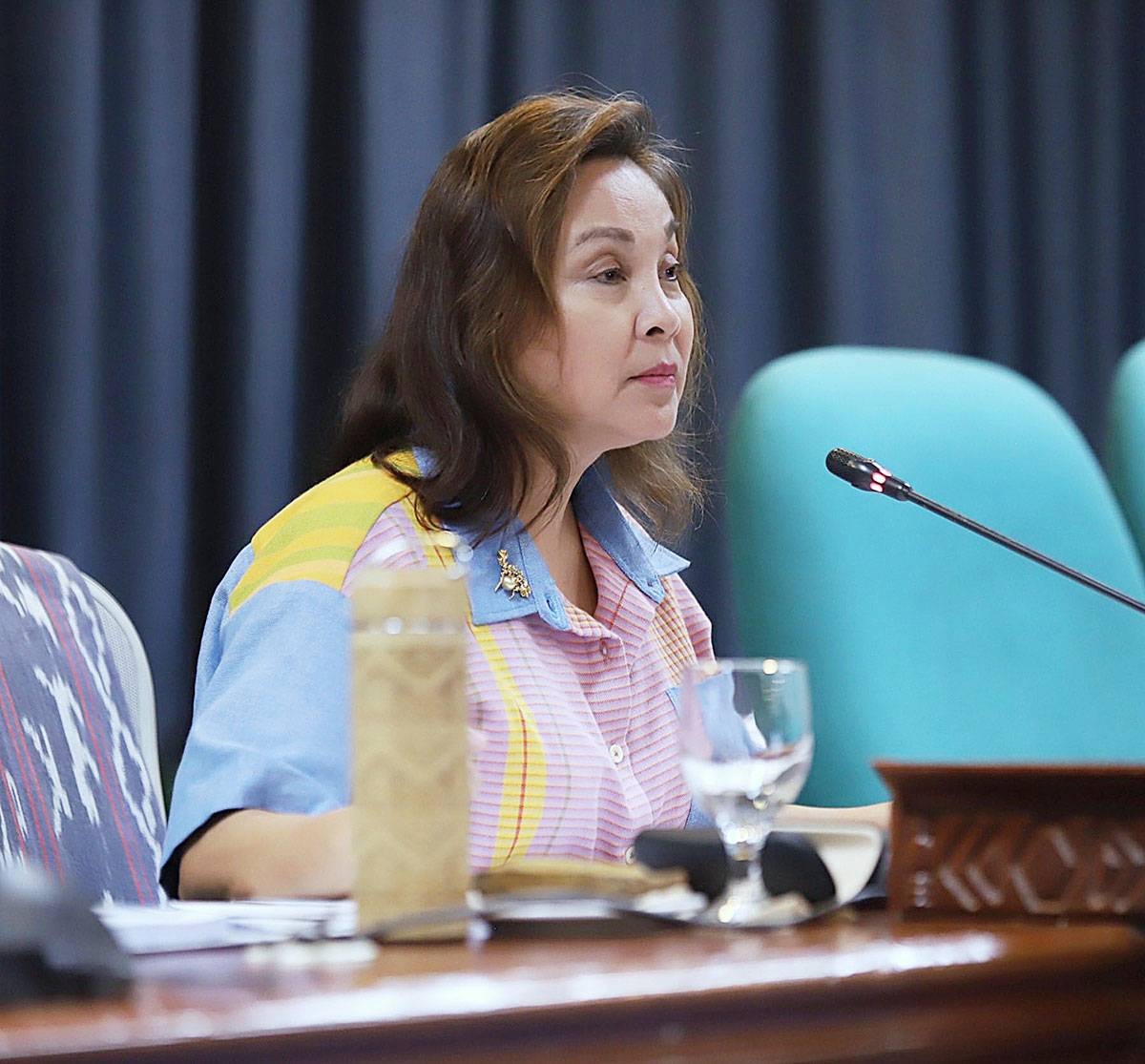Prompt climate action sought
SEN. Loren Legarda urged the government to take decisive steps this year against climate change, pollution and biodiversity loss, referred to as the Triple Planetary Crisis. "As we enter 2025, and as I have said before on numerous environmental discussions, we must recognize that the triple planetary crisis — climate change, pollution, and biodiversity loss — is no longer an abstract concern. It is happening now and is deeply interconnected with our daily lives and future prospects," Legarda said. "The effects of pollution and climate change are visible across the country. From intensified typhoons and flooding in Metro Manila to prolonged droughts in the provinces, these are not isolated incidents but consequences of our environmental degradation," she added. Legarda said the three issues were interrelated, with climate change accelerating biodiversity loss while pollution damages ecosystems, eventually reducing the planet's capacity to absorb carbon emissions. The senator added that the country's poor waste management infrastructure exacerbates environmental problems as seen in the increasing amount of hazardous waste produced, a staggering 253,000 tons in 2022 alone. She said over 80 percent of wastewater in Metro Manila was discharged untreated, contributing to widespread health and environmental risks. The Philippines, the senator added, was in persistent struggle with air pollution. In 2023, the country ranked 79th out of 134 nations in terms of air quality. Legarda called for stronger collaboration between the government, businesses and communities in protecting the environment. Convention on Biological Diversity data said the Philippines is one of the world's 18 mega-biodiverse countries, harboring a significant portion of the planet's biodiversity. It is home to approximately two-thirds of Earth's species and about 70 to 80 percent of global plant and animal varieties. Notably, the country ranks fifth in plant species diversity, accounting for 5 percent of the world's flora, highlighting its critical role in global biodiversity conservation. "Addressing the triple planetary crisis is not easy — it is complicated and requires a whole-of-society approach. But it is a challenge we must take on if we want a sustainable future for future generations," Legarda said.

SEN. Loren Legarda urged the government to take decisive steps this year against climate change, pollution and biodiversity loss, referred to as the Triple Planetary Crisis.
"As we enter 2025, and as I have said before on numerous environmental discussions, we must recognize that the triple planetary crisis — climate change, pollution, and biodiversity loss — is no longer an abstract concern. It is happening now and is deeply interconnected with our daily lives and future prospects," Legarda said.
"The effects of pollution and climate change are visible across the country. From intensified typhoons and flooding in Metro Manila to prolonged droughts in the provinces, these are not isolated incidents but consequences of our environmental degradation," she added.
Legarda said the three issues were interrelated, with climate change accelerating biodiversity loss while pollution damages ecosystems, eventually reducing the planet's capacity to absorb carbon emissions.
The senator added that the country's poor waste management infrastructure exacerbates environmental problems as seen in the increasing amount of hazardous waste produced, a staggering 253,000 tons in 2022 alone.
She said over 80 percent of wastewater in Metro Manila was discharged untreated, contributing to widespread health and environmental risks.
The Philippines, the senator added, was in persistent struggle with air pollution.
In 2023, the country ranked 79th out of 134 nations in terms of air quality.
Legarda called for stronger collaboration between the government, businesses and communities in protecting the environment.
Convention on Biological Diversity data said the Philippines is one of the world's 18 mega-biodiverse countries, harboring a significant portion of the planet's biodiversity. It is home to approximately two-thirds of Earth's species and about 70 to 80 percent of global plant and animal varieties.
Notably, the country ranks fifth in plant species diversity, accounting for 5 percent of the world's flora, highlighting its critical role in global biodiversity conservation.
"Addressing the triple planetary crisis is not easy — it is complicated and requires a whole-of-society approach. But it is a challenge we must take on if we want a sustainable future for future generations," Legarda said.
















